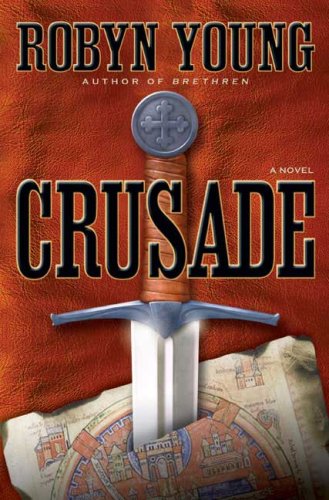Crusade
Crusade is an epic tale of war, political intrigue, religious fervor, greed, and passion set in Acre of 1274. It captures the color and bustle of that vigorous trading port where Venetians, Genoese, Arabs, Jews, Franks, and English live and work in their respective sectors but where trade and matters of governance and defense force them into tenuous and shifting alliances.
Not everyone in Acre is happy with the truce between Mamelukes and Christians. Peacetime is bad for certain businesses. A cabal of merchants collaborates with the Grand Master of the Knights Templar, who uses them in turn to further his own agenda. Together they concoct a scheme that would set the Near East ablaze in unstoppable jihad. Templar knight Will Campbell is ordered to execute his Grand Master’s plan—but he is also pledged to the Brethren, a clandestine group within the Temple whose mission is to maintain peace in the Holy Land. The web tangles hopelessly as his efforts at peacekeeping are betrayed—as is his love of Elwen, illicit though it was for the should-be celibate Templar.
I will not spoil the story by telling whether Will was successful in foiling the scheme, but will finish by saying that the story ends with the battle for Acre in 1291. It’s impossible to put the book down at this point. I was impressed that the author included details like the Frankish horseman getting tangled in the guy ropes of Arab tents and a knight being thrown from his horse into a latrine. Both events are recorded in Gabrieli’s Arab Historians of the Crusades.
Crusade sweeps you from the ramparts and markets of Acre to Cairo’s palace and walled harem, to the hills of Syria, the holy mosques of Mecca, and a hundred points in between. The story is outstanding—a winner from start to finish.










